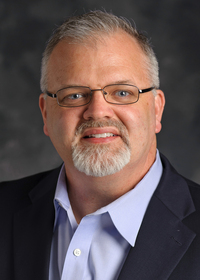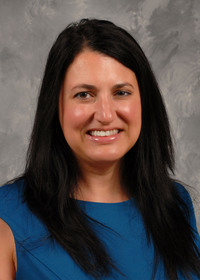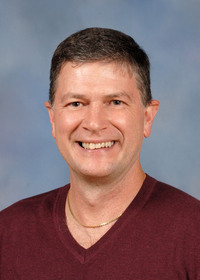Information Possibly Outdated
The information presented on this page was originally released on August 26, 2010. It may not be outdated, but please search our site for more current information. If you plan to quote or reference this information in a publication, please check with the Extension specialist or author before proceeding.
Poverty project sees early successes, plans expansion
By Rachel Jenkins
Southern Rural Development Center
MISSISSIPPI STATE – In its first year alone, Turning the Tide on Poverty launched 30 study circles with more than 250 participants across five southern states and now has additional funding to expand.
Turning the Tide on Poverty, a project of the Southern Rural Development Center hosted at Mississippi State University, works to find solutions to poverty through community study circles, gatherings where people create action plans for local change.
Turning the Tide is active in Alabama, Georgia, Louisiana, Mississippi and Oklahoma, and its study circle process has contributed to new and expanded programs in Mississippi’s Neshoba and Lauderdale counties.
Tide has been active in Neshoba County with Extension agents Susan Cosgrove, family resource management area agent, and Karen Benson, child and family development agent. The process led to launching programs such as Money Mentors and Master Family Life Educator Volunteers in the community. A volunteer core is now in training.
“The volunteers are skillful, eager and will make a great contribution to this project,” Benson said.
A food bank has also started in Union to assist the mayor’s office with incoming calls and requests to help match community resources with individual needs.
“The food bank began with the help of the postal service. Residents would leave items in their mailboxes for the postal carrier to take when delivering their mail. We have been receiving donations from local churches continually, and we are now starting to see families visit the food bank regularly,” Benson said.
Along with donations from churches, Neshoba County also received an anonymous donation designated to build 12 small gardens for families in need.
Tide has helped improve communication in Neshoba County by updating a community resource guide and making it available online. The community resource guide should be completed in September.
In the same time period, Tide helped Lauderdale County address various food, economic and education issues.
Because of the study circles, a new farmers’ market was established, bringing fresh produce to downtown Meridian residents while providing a new source of income to small-scale local farmers. The community members working with Tide have fostered parental involvement in Meridian Public Schools by visiting city housing communities to discuss the importance of parental involvement in education.
Volunteers are working to help beautify Lauderdale County. The Housing and Beautification Action Team is identifying future projects, such as converting abandoned houses in the city into livable spaces for low-income residents.
They are in the process of fundraising to convert the city’s oldest historic black school, Wechsler School, into a community center. They have set a fundraising goal of $3 million to transform the building into a multi-purpose culture and resource center for the community, including amenities such as day care, after-school recreation and work groups for local residents.
The Mississippi pilot sites are not alone. Alabama is using the same study circles approach to tackle youth violence, and a Louisiana site expanded a high school career fair to include parents and community adults. Because of the study circles format, each site is unique in its plans and group-led efforts to address a problem.
Rachel Welborn, program manager at the Southern Rural Development Center, said uniqueness of each site and its plans are the strength of the program.
“The goal of Tide is to get people involved. The process is important because it puts community decisions back into the hands of the people. It moves them from being consumers of decisions to being creators of decisions. That’s the bottom line,” Welborn said.” They’re not sitting at home expecting and waiting for change. They’re part of the change.”
For the 2010-11 year, the Southern Rural Development Center, with the help of a donation from The Farm Foundation, plans to expand Turning the Tide on Poverty into as many as five additional states in the region.
For more information about Turning the Tide on Poverty and progress from the pilot sites, visit http://srdc.msstate.edu/tide/.





